From an asylum centre to a Swiss university
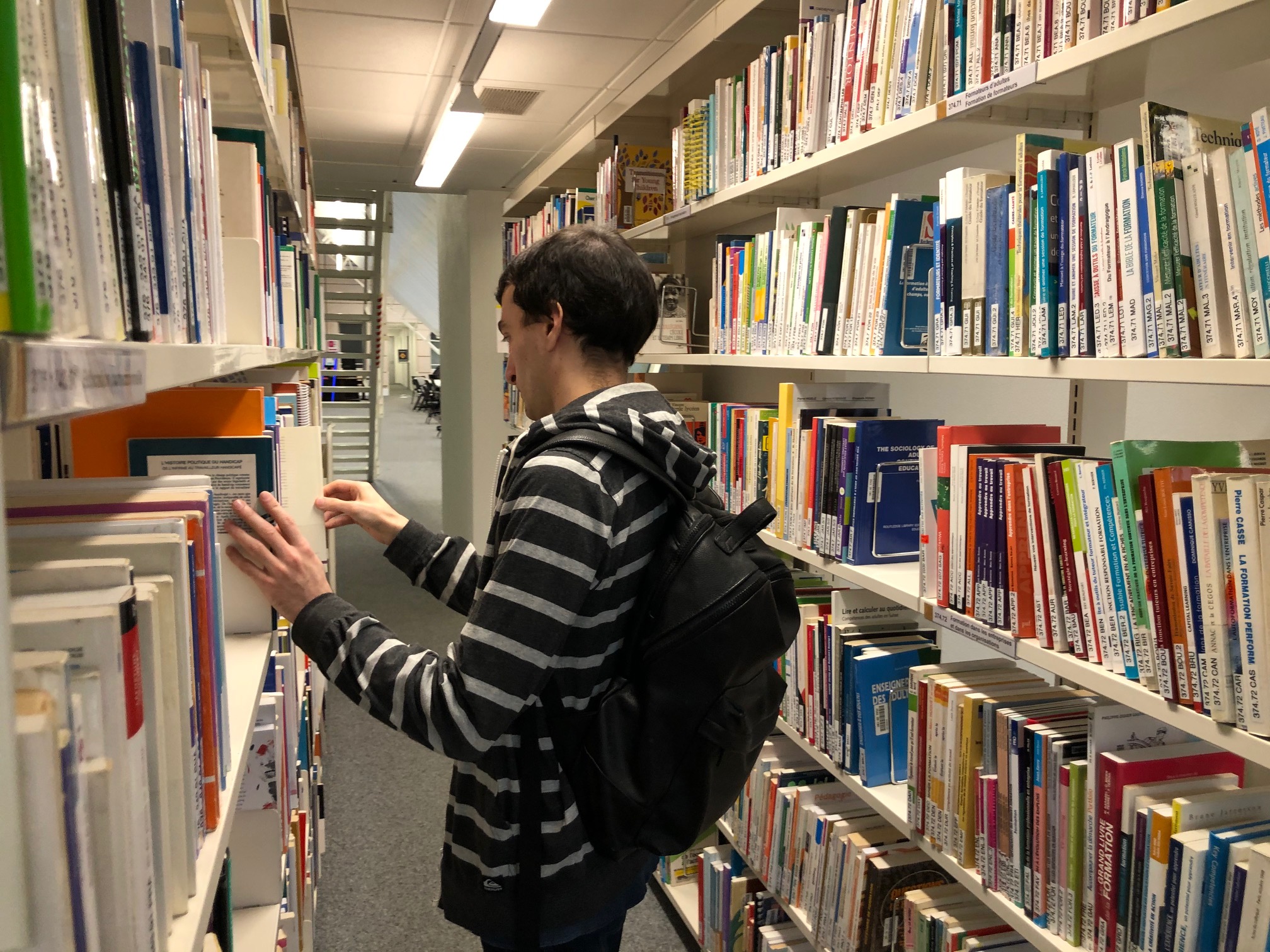
Higher education offers a window of opportunity for refugees in Switzerland but it’s not easy to get through - and the Covid-19 pandemic has made it harder. But Chechen native Dagun Deniev has succeeded.
Literature studies and writing have been a spiritual refuge since the Geneva University student arrived in Switzerland in December 2010 as a 17-year-old boy in search of political asylum. “My mother was involved in human rights activities. She was arrested twice. We lived in fear 24 hours a day,” Deniev explained.
After applying to the Vallorbe refugee centre, the family was sent to Geneva. Here, Deniev lived in refugee centres and had a short stay in an immigration detention centre before an attempted deportation. The young man, who looks younger than his 28 years, began by learning French and was able to start his Bachelors degree in 2014. He is currently doing a Masters in Russian Literature.
Our first meeting takes place in the university library – just one day before the national lockdown in March. When I asked, ‘Dagun, how are your studies going?’ he just laughs, saying he has no other choice. Over the years, education has been his lifeline.
Refugees in Swiss universities
No statistics are kept on how many refugees and asylum seekers are studying at Swiss universities. You are eligible if you have a residence permit N (asylum seeker) or F (temporary residence permit for refugees). But there are no tuition discounts and no special treatment for admissions, as universities set the same requirements for all foreign applicants.
“Two-thirds of refugees who want information on studying need some help,” said Martina von Arx from the refugee information platform Perspectives StudiesExternal link. According to von Arx, someone may be “out of luck” with their place of residence. This is because the Swiss asylum system distributes applicants among the 26 cantons and each has slightly different procedures for language training, access to social assistance and information.
Many refugees are also struggling with getting their diplomas recognised, funding their studies and the scarcity of the language courses available, as has been noted by nccr- on the moveExternal link, the National Centre of Competence in Research for migration and mobility studies and other sourcesExternal link.
But this does not seem to dampen their desire to study. When the Swiss Federal Institute of Technology Zurich (ETH Zurich) opened to refugees in 2016, 120 people immediately applied for 40 vacancies, the newspaper Le TempsExternal link reported at the time. In the same article, University of Geneva rector Yves Flückiger said that accepting refugees was “more than just academic education and support for integration: the main thing is that this project allows students to see a future”.

More
Refugees get a taste of Swiss university life
However, the academic path also requires strong self-discipline, as Deniev well knows. “Hostel conditions are difficult. There were four of us in a small 16-square-metre room that had bunk beds, a wash basin, refrigerator and four metal cabinets. It was noisy, and I couldn’t even sit down with a book at the dirty and cluttered table. It was impossible to study under such conditions, so I spent most of my time in the library.”
From the library to prison
Studying distracted him from what looked like a shaky future, which saw the family’s asylum request rejected in 2011, and again in 2013, on appeal.
Rejected asylum seekers were sent to the notorious Foyer de Tattes centre in Geneva (in 2014 a man died and several were injured after a fight and fire there). He and his mother were moved into different buildings: Deniev’s was a male housing unit supervised round the clock by security guards. They lived there for three years.
In late 2016 Deniev was arrested and placed in an administrative detention unit for 20 days while awaiting deportation on a special flight to Russia. “I lost sleep and almost my mind,” he recalled.
His mother and student friends sounded the alarmExternal link and the Geneva media became interested in the case. “While I was behind bars, a support committee took up my cause and several demonstrations were held in my favour. My teachers visited me in prison. My lawyer brought me many support notes. I am so grateful for that,” he said.
The canton of Geneva cancelled his deportation. But Deniev’s legal status was still problematic, so the University of Geneva fortunately put him in contact with an immigration lawyer.
Covid-19 pandemic effects
Switzerland continued to process asylum applications and expel rejected asylum seekers during the height of the coronavirus pandemic. At the end of March, Deniev went to Bern for another interview at the State Secretariat for Migration (SEM) for his asylum process.
When he returned to Geneva, he found out that the university had cancelled on-site classes as part of its pandemic measures. Distance learning requires good access to the internet and a quiet and safe place to study, both rare commodities in refugee centres, Computers also have to be disinfected after use.
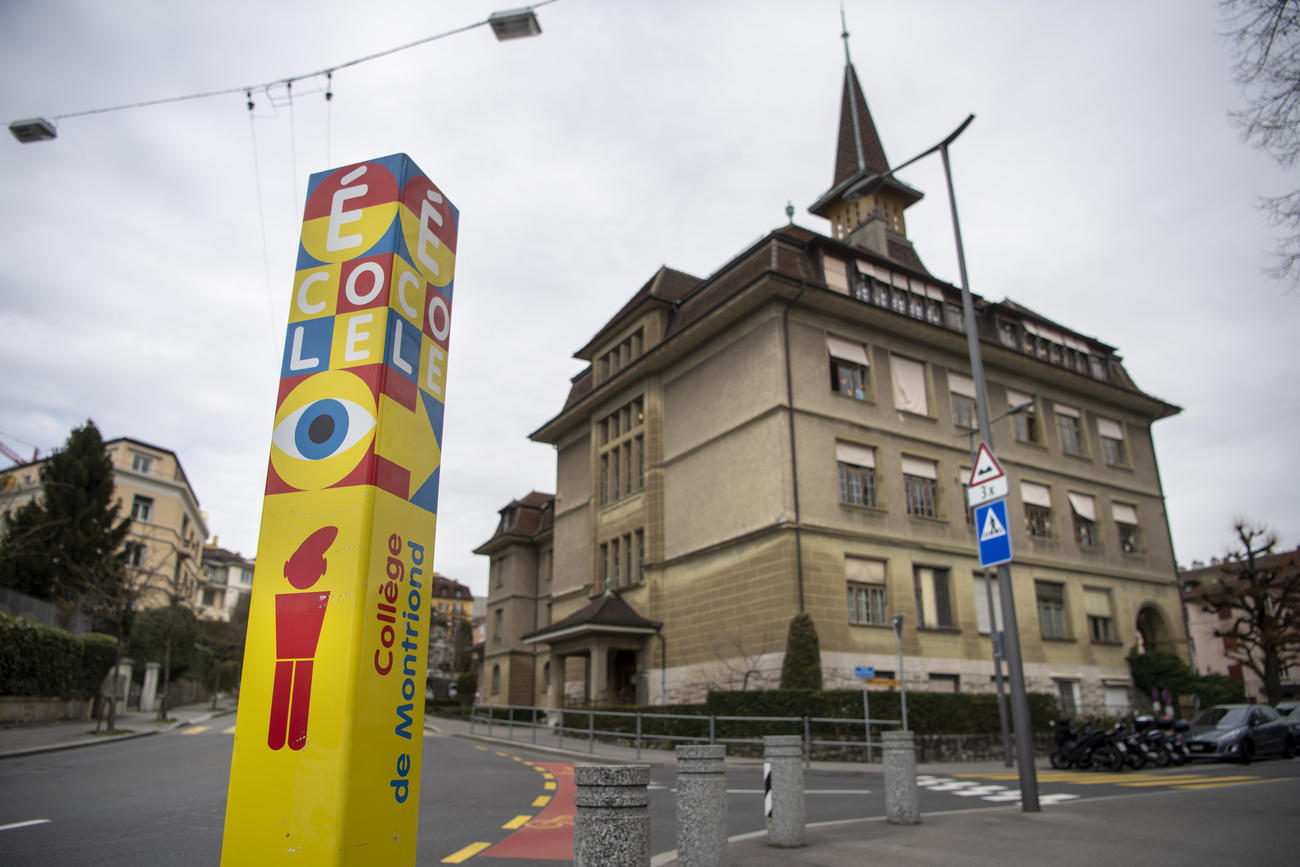
More
Switzerland closes its schools to slow virus spread
But the autumn semester brought another big change: Deniev has been granted a F temporary residence permit and is now allowed to work to support his studies.
Lawyer Delphine Poussin from the Geneva office of Etter & Buser has represented Deniev since December 2016 on the recommendation of the university. As she explained by email, the case was “extremely complex and took four years of fighting before he finally received a temporary residence permit”.
She said that her client “deserved this great victory” but she doesn’t think “that the fact that he is a student played a role for migration authorities”. Sanctuary is granted to a person based on whether he or she will be persecuted at home, and not on “personal merits”.
Deniev now lives in a student residence – modestly, but with more comfort than in a refugee centre. “Mum comes to see me every day just to rest. She goes to language courses for women, but it’s hard as she is 65 years old and it is difficult to learn new things,” he said.
The student is also a published author, having written the novel “Carnets d’un requérant d’asile déboutéExternal link” (Notebooks from a rejected asylum seekers) about his experiences. A collection of stories in Russian were previously long listed for a Russian literary prize in 2009.
Translated and adapted from Russian

In compliance with the JTI standards
More: SWI swissinfo.ch certified by the Journalism Trust Initiative
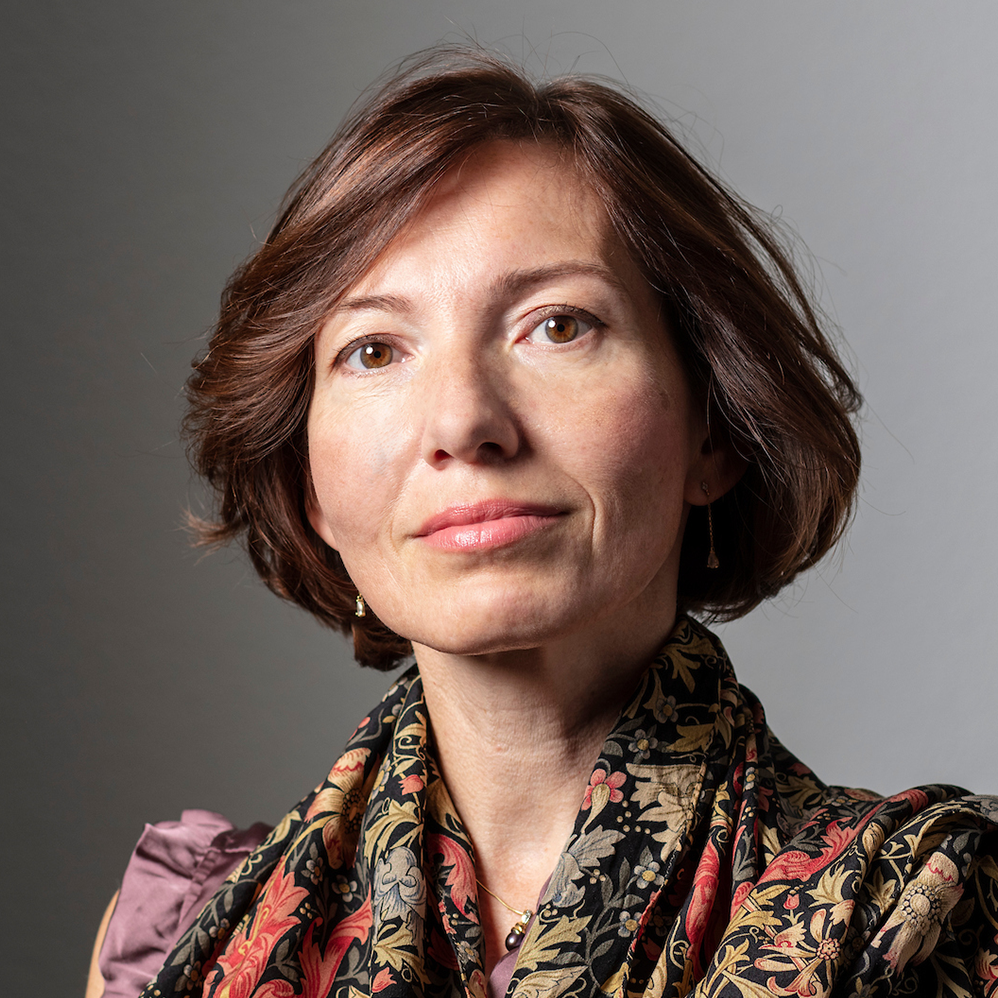












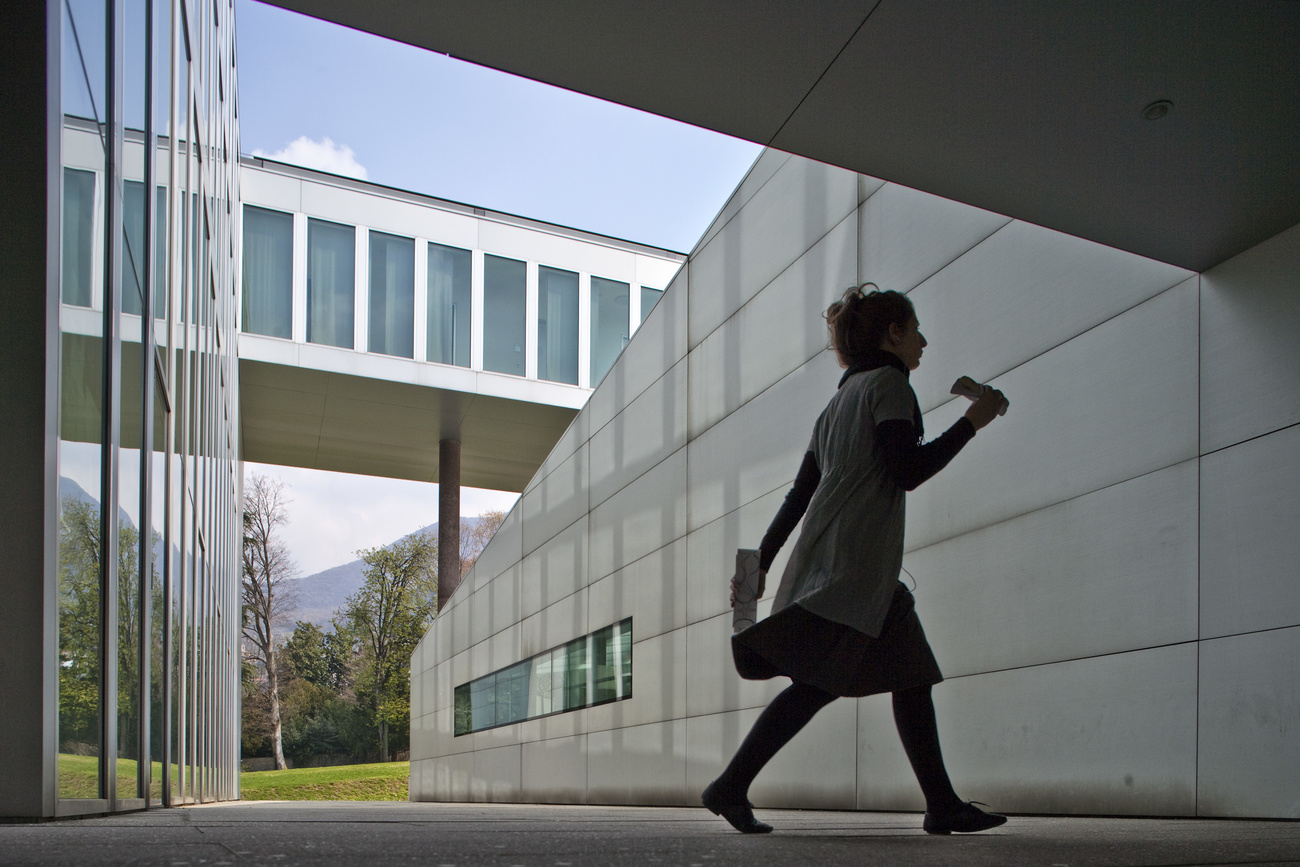
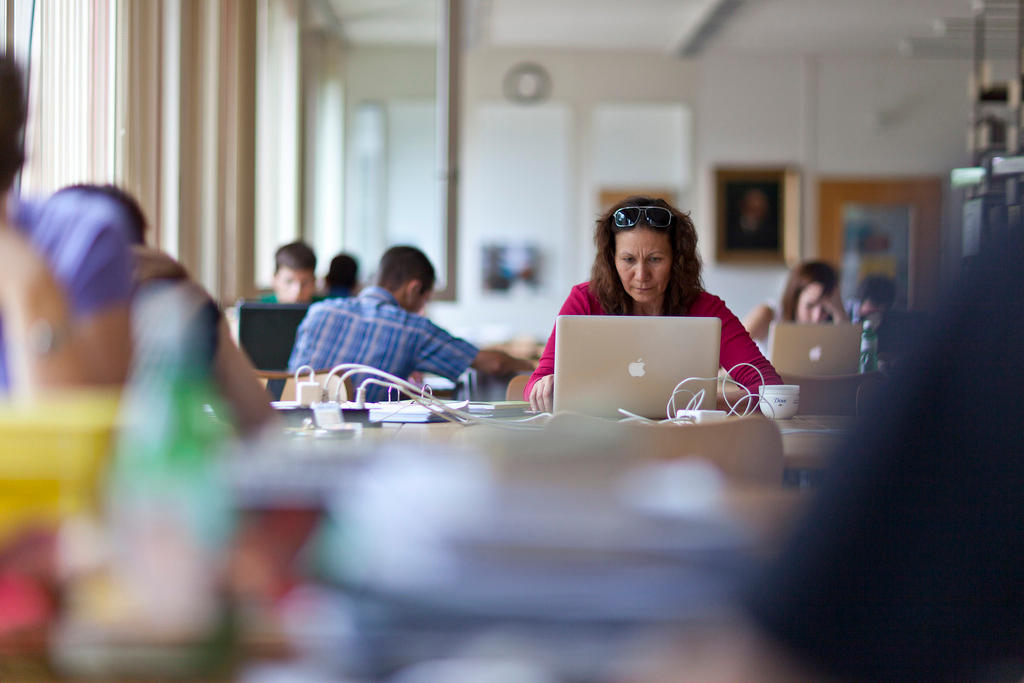
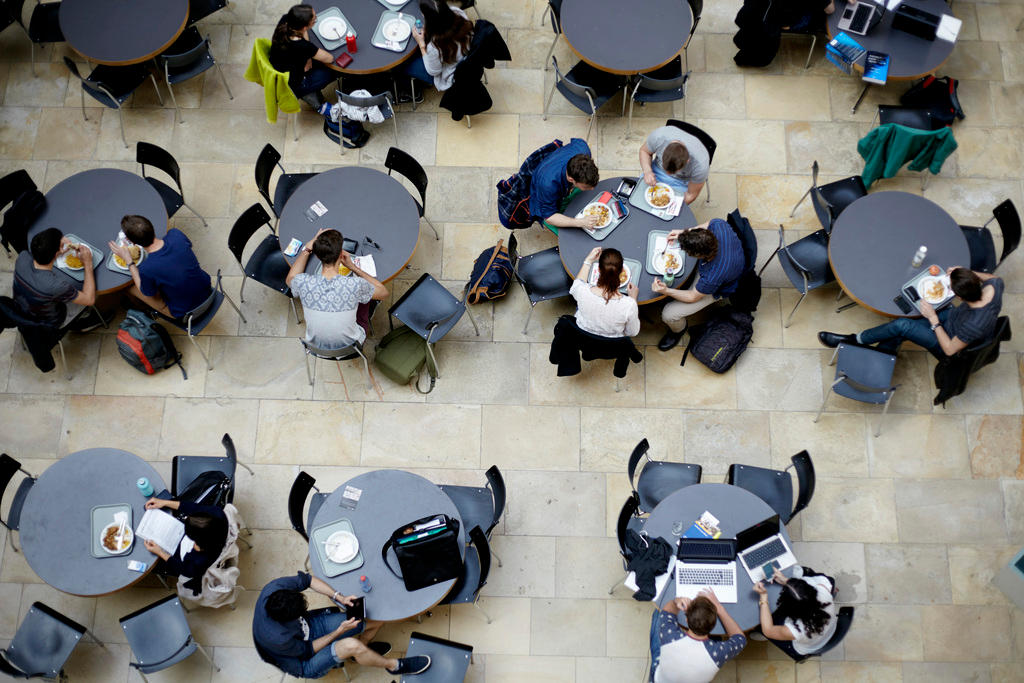
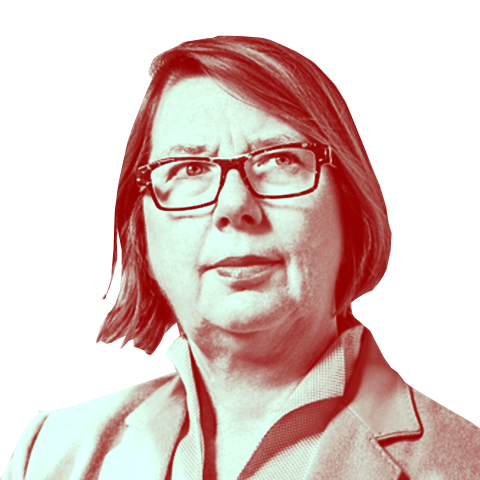

Join the conversation!